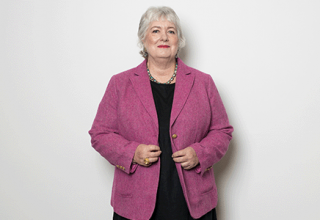Three Waters reform under way

Three Waters reform under way
Wednesday 8 June, 2022
Water Services Entities Bill introduced
On Thursday 2 June, the Water Services Entities Bill (the Bill) was introduced to Parliament. The Bill will implement the Government’s decisions to establish four public entities to take on the delivery of drinking water, wastewater and stormwater services across New Zealand from July 2024.
The Government’s three waters reform has four key outcomes:
- Safe reliable drinking water
- Better environmental performance of wastewater and stormwater services
- Efficient, sustainable, resilient, and accountable multi-regional water and sewage services
- Making it affordable for future generations
The new water services regulator Taumata Arawai was established to address the first of the outcomes - to ensure all drinking water supplies is safe, that is “unlikely to cause a serious risk of death, injury, or illness”. The Bill addresses the remainder of the outcomes.
Proposed structure
The Bill shifts the ownership of 67 council owned and operated water services to four new water service entities (WSEs) (Northern, Western-Central, Eastern-Central, and Southern).
Adopting the recommendation from the Working Group on Representation, Governance and Accountability, the WSE’s will be body corporates owned by councils on behalf of their communities. Each local council will be given one share in the water services entities per 50,000 people in its district (rounded up). Local councils will be the only shareholders in these entities. These shares cannot be sold or otherwise transferred; and do not come with a financial benefit or liability.
Governance arrangements
The Bill establishes a two-tier governance arrangement. Each entity will have a Regional Representative Group (RRG) – equally composed of local government and mana whenua representatives - that will provide strategic direction and oversight. The RRGs will appoint independent competency-based Boards to carry out the operational functions of the WSEs.
Further Bills will be introduced to provide for the transfer of assets, but the proposed structure and governance arrangement provide for financial independence from central and local government – with the power to borrow to fund infrastructure. This power to borrow outside of the constraints of government debt ceilings is one the primary reasons advanced for the reforms.
Government’s response to the Working Group
The release of the reform programme sparked wide-spread concern among some local authorities and communities, and the Government set up the Governance Representation and Accountability Working Group to consider and report on those reforms. The Working Group reported back on 10 March, and the Government response came out on 29 April. All but three of the Working Group’s 47 recommendations have been accepted. Where are the differences?:
Water Services Ombudsman
The Working Group proposed the establishment of a Water Services Ombudsman and the Government has confirmed this recommendation will be considered in relation to wider economic and consumer regulation being developed.
Extension of Te Mana o te Wai
Te Mana o te Wai is a concept that refers to the fundamental importance of water and recognises that protecting the health of freshwater protects the health and well-being of the wider environment. The Working Group recommended that the concept be applied to all water bodies that are affected by three waters, including marine and estuarine water, lagoons and puna (springs). The Government agrees with this recommendation in principle but acknowledges that further work is required to ensure alignment with other Government frameworks and legislation that relate to Te Mana o te Wai.
Central Government funding
The Working Party recommended that central government have an ongoing role in the investment of water services. The Government has said it will continue to support WSEs through monitoring and stewardship.
Relationship to resource management reform
The Working Group recommended that resource management reforms be consistent with and do not undermine the three waters reform. The resource management system is also undergoing a significant rethink, with two new Bills proposed to be introduced to Parliament by September this year. The Department of Internal Affairs has established a Planning Technical Working Group to assist with the policy decisions that will need to be made to ensure the objectives of three water reform are achieved within the new resource management system. Policy proposals from this Working Group are anticipated to be considered later in 2022 and would be included in the further three waters legislation.
A national stocktake of three water infrastructure identified significant non-compliances with environmental standards and conditions, at a time when freshwater and coastal water quality is already under pressure. The proposed national planning framework and the spatial planning tools signposted as cornerstones of the resource management reform are likely to be influential to three waters infrastructure planning and delivery.
In other jurisdictions, it has taken ten years from the aggregation of three waters services, before any tangible drinking water or environmental improvements were seen. The success of the NZ experience is going to be closely linked to the management of three water infrastructure through the next ten years of resource management reform and transition, along with planning for climate change adaption.
Tompkins Wake comments
Legal challenge
The reform of three waters is still proving to be controversial, even though there is a broad acceptance that the current system does not work. Three Councils have commenced High Court proceedings arguing that the reforms impinge on their property rights. That hearing is due to be heard in the High Court this month. The Government is unlikely to be side-tracked by these proceedings but the litigation represents the level of opposition in some communities despite the Working Group recommendations being accepted.
Co-governance
The co-governance requirements for the RRGs have become a hot political issue, at times diverting attention away from the fact that one in five NZ’ers receive drinking water that does not meet NZ standards and that sewerage overflows are commonplace. Co-governance is not new but the model for the three waters is one of the biggest examples to date. One thing co-governance it is not about, despite cries to the contrary, is ownership. Assets are being removed from local government, but they will not be owned or even part-owned by the RRG or WSE.
Local Government review
In addition to the three waters and resource management reform, the future of local government is also under review more generally. The independent review released an interim report in October 2021 and has since identified five key shifts to local governance that they believe will be required in the system is to meet the needs of Aotearoa in 30 years’ time:
- Strengthened local democracy
- Stronger focus on wellbeing
- Authentic relationship with hapū/iwi/Māori
- Genuine partnership between central government and local government
- More equitable funding
The draft report and recommendations are due to be released mid-October this year.
Some might argue that the financial incentives offered by Government through the “no worse off” policy and the “better off” package, and the freedom from the need to provide and maintain water services and the associated infrastructure, might provide an enhanced opportunity to promote those other aspects of well-being – the social, economic, and cultural.
If you have any questions relating to this article, please get in touch with one of our experts below.










